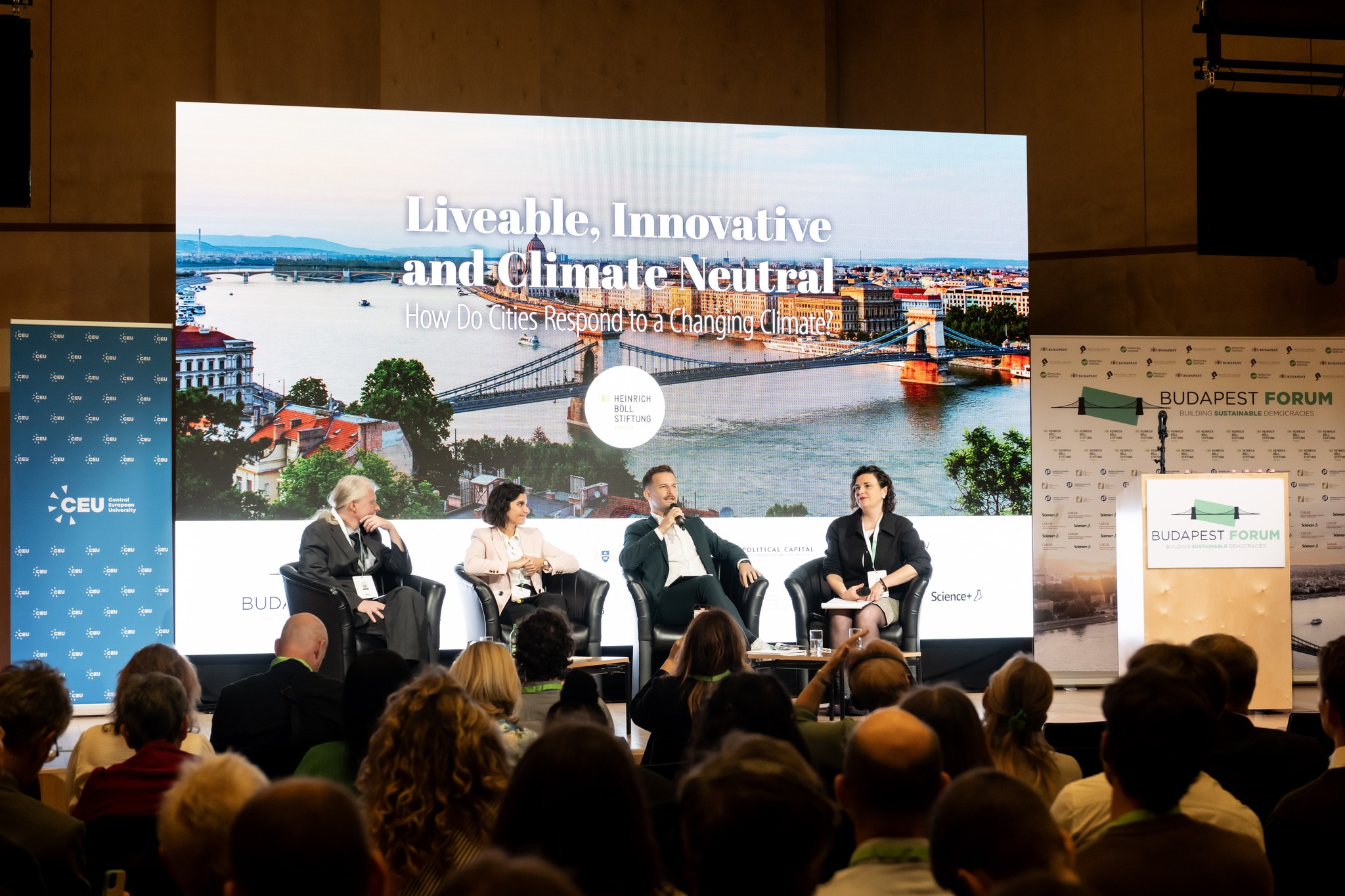Liveable, innovative and climate neutral: How do cities respond to a changing climate?
2025-09-24
Panel summary: ‘Liveable, innovative and climate neutral: How do cities respond to a changing climate?’ at Budapest Forum 2025.
Participants
Peter Kraus – Co- Leader, The Green Party Vienna / City Councillor and Member of the State Government Vienna
Diána Kupper – Green Finance Expert, Global Green Growth Institute Hungary
Attila Varga – Habil. Associate Professor, Eötvös Loránd University
Moderator: Adela Jurečková – Director, Heinrich-Böll-Stiftung Prague

Main takeaways
- Cities are central to both causing and addressing climate change, with over 70% of CO₂ emissions linked to urban areas.
- Panelists highlighted bold local actions: Budapest’s “Healthy Streets,” Göd’s transformation of a golf course into a biodiversity park, and Vienna’s conversion of parking space into green areas.
- The audience identified barriers to urban climate action: lack of leadership, insufficient funding, public resistance, and complex governance.
- Vienna’s Climate Guide 2040 aims for neutrality by 2040, focusing on innovation, just transition, and improved quality of life.
- Psychological research shows that climate-friendly urban design (e.g. green spaces, walkability) enhances well-being, but policies must align with people’s everyday goals to be effective.
- Eco-anxiety is rising, especially among youth; providing actionable, local solutions helps channel anxiety into pro-environmental behavior.
- Financing remains a core challenge: cities must combine EU funds, green bonds, public-private partnerships, and participatory budgeting.
- Climate policy and social policy are intertwined—low-income groups are most vulnerable to inaction, making fairness central to acceptance.
- Strong local institutions, citizen participation (e.g. Vienna’s Climate Teams), and cross-sector coordination are essential for resilience.
- Resilience is built through neighborhood-level cooperation, social ties, and inclusive decision-making.
- Successful climate action requires integrating sustainability into broader urban strategies (mobility, housing, energy) rather than treating it as a separate agenda.
This panel discussion was co-organized with the Heinrich Böll Foundation.
Explore all the panel discussions from Budapest Forum 2025 here.
Copyright 2026. Political Capital Policy Research and Consulting Institute, all rights reserved.

